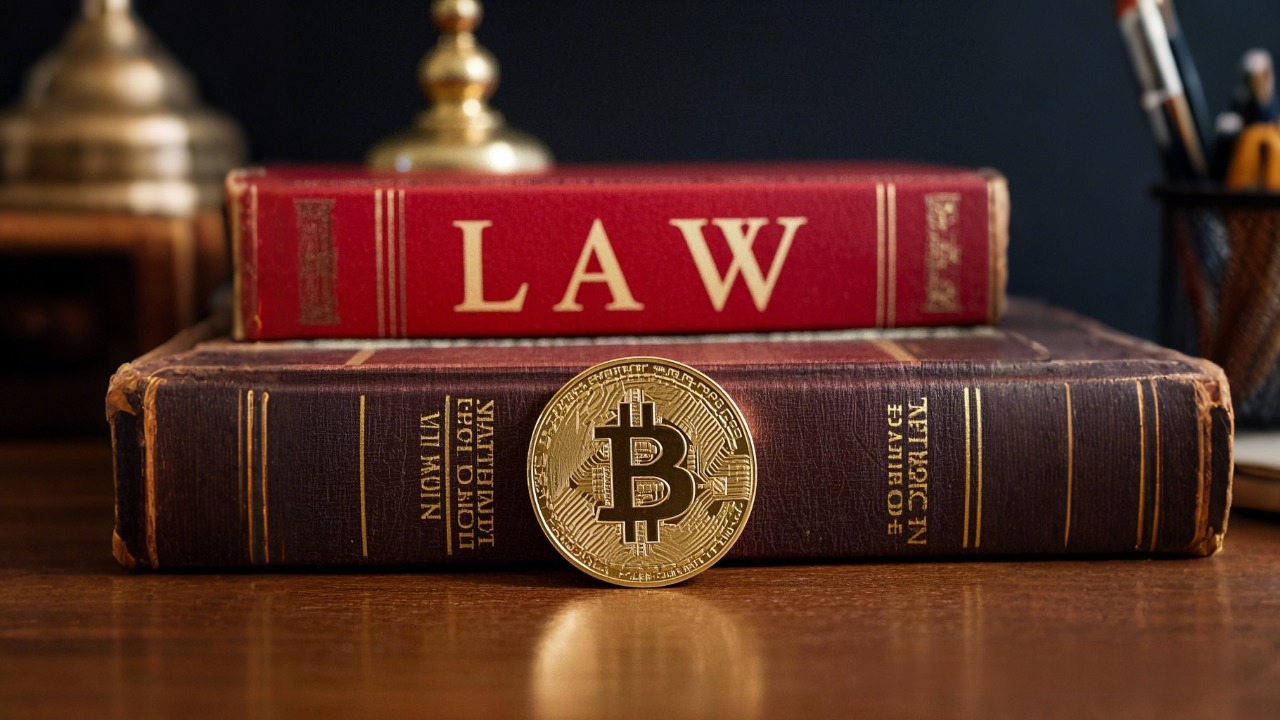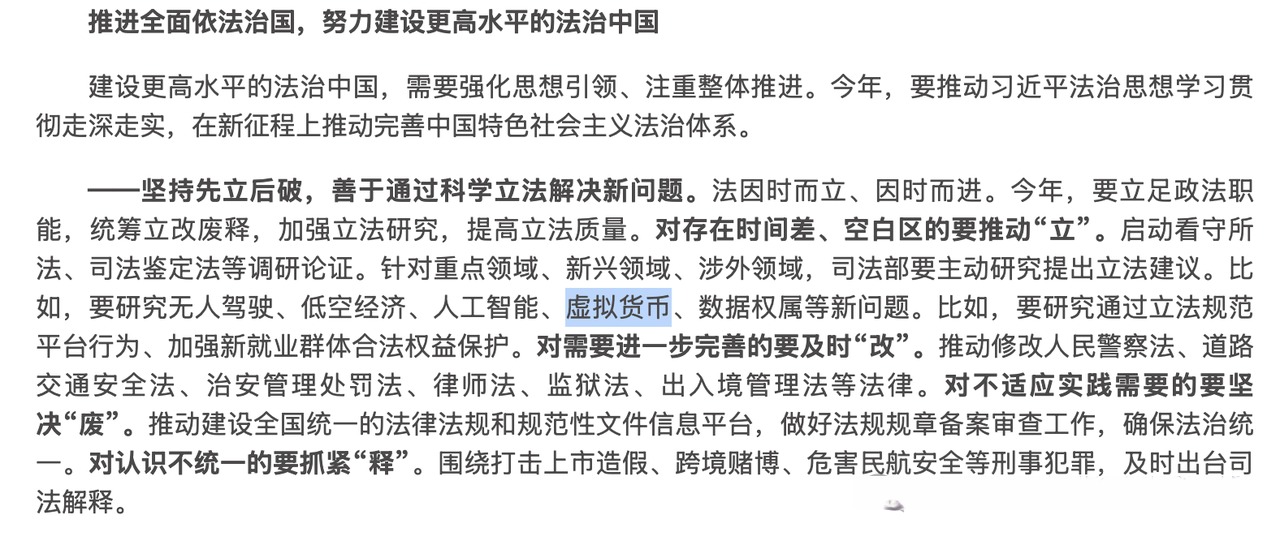In January 2025, a meeting of the Central Political and Legal Affairs Commission was held in Beijing, where virtual currency was mentioned.
Written by: Lawyer Liu Zhengyao
People in the cryptocurrency circle generally have a strong spirit of adventure; a small portion belong to the "ignorance is bliss" category, while most have a certain understanding of blockchain technology and virtual currency. Although our country does not prohibit ordinary citizens from investing in virtual currency, it does not allow any financial institutions or third-party payment institutions to provide services for virtual currency transactions.
Even so, the cryptocurrency ecosystem in mainland China has developed into an important part of the global virtual currency ecosystem, with exchanges like Binance, OKEx, and Huobi being established or deeply participated in by Chinese people or even citizens from mainland China. People in the mainland cryptocurrency circle are always paying attention to China's regulatory policies regarding the cryptocurrency sector, which indirectly influences the political ecology of the cryptocurrency sector in China, a phenomenon rarely seen in other industries.
From January 12 to 13, 2025, the Central Political and Legal Affairs Commission meeting was held in Beijing, where virtual currency was mentioned again. The cryptocurrency community was stirred up, with some shouting: "The state will legislate on virtual currency in 2025!" In fact, part of the reason for this is the "contribution" of some lawyers: using plagiarized and awkward phrases, accompanied by urgent background music, they energetically promote on short videos. In reality, these so-called cryptocurrency lawyers may not have represented a single cryptocurrency-related case and might even confuse USDT with USTD. Lawyer Liu expresses this not to belittle his peers, but because he is quite averse to some people who intimidate or please the public by selling anxiety or fabricated positive information, regardless of whether these individuals are lawyers.

Will the state legislate on virtual currency in 2025? Based solely on the press release after the Central Political and Legal Affairs Commission meeting, Lawyer Liu believes it will not. The reasons are as follows:
First, the role positioning of the Central Political and Legal Affairs Commission. The Central Political and Legal Affairs Commission is a directly subordinate institution of the Central Committee of the Communist Party of China. In the current political structure of our country, it is part of the central government (Ministry of Public Security, Ministry of Justice) and is a higher-level institution over the Supreme People's Procuratorate and the Supreme People's Court. It is impossible for the Central Political and Legal Affairs Commission to directly decide whether to legislate in any particular field.
Second, the content of the entire meeting. The official news website of the Central Political and Legal Affairs Commission, "China Chang'an Net," published the full text of "The Central Political and Legal Work Conference Held in Beijing," indicating that the main tasks of this meeting were:
To fully maintain national security and social stability, and strive to build a higher level of a safe China;
To promote comprehensive rule of law, and strive to build a higher level of a rule of law China;
To implement and improve the Party's management of political and legal work system.
The content related to virtual currency is included in the second point, as follows:

"Regarding key areas, emerging fields, and foreign-related fields, the Ministry of Justice should actively study and propose legislative suggestions. For example, it should study new issues such as unmanned driving, low-altitude economy, artificial intelligence, virtual currency, and data ownership."
My understanding of this statement is that the Central Political and Legal Affairs Commission requires the Ministry of Justice to actively study and propose legislative suggestions for specific fields, but the distance between legislative suggestions and formal legislation is "indeed very long if said long, and certainly not short if said short." It is almost impossible to see the state legislate on virtual currency by 2025. Additionally, there are procedural issues with the Ministry of Justice proposing legislative suggestions in the field of virtual currency.
Third, the influence of virtual currency itself. Just as lawyers or other legal professionals always believe that law is the primary principle governing the world, those entering the cryptocurrency circle often artificially attribute much more value to virtual currency than its actual influence. Frankly speaking, virtual currency is still a very niche field in China; even if the current U business claims to have hundreds of thousands of users, it is still insignificant in the vast land of China.
As mentioned in the second point, virtual currency is at best on par with "unmanned driving, low-altitude economy, artificial intelligence, and data ownership." Taking artificial intelligence as an example, its positive influence in the country is definitely greater than that of virtual currency. If legislation is to be enacted to better regulate and combat virtual currency, it would indeed come earlier than for artificial intelligence. Even if virtual currency has a significant impact on mainstream financial order, foreign exchange management, and crime prevention, we judge that it is very difficult for the state to issue laws specifically targeting virtual currency in the short term. It is more likely that some judicial interpretations will be modified to include virtual currency, or that the "9.24 Notice," issued in 2021 and still in effect, will be amended in 2025 (and it is highly likely to involve issues of judicial appraisal, price evaluation, and judicial disposal of involved virtual currencies).
免责声明:本文章仅代表作者个人观点,不代表本平台的立场和观点。本文章仅供信息分享,不构成对任何人的任何投资建议。用户与作者之间的任何争议,与本平台无关。如网页中刊载的文章或图片涉及侵权,请提供相关的权利证明和身份证明发送邮件到support@aicoin.com,本平台相关工作人员将会进行核查。




